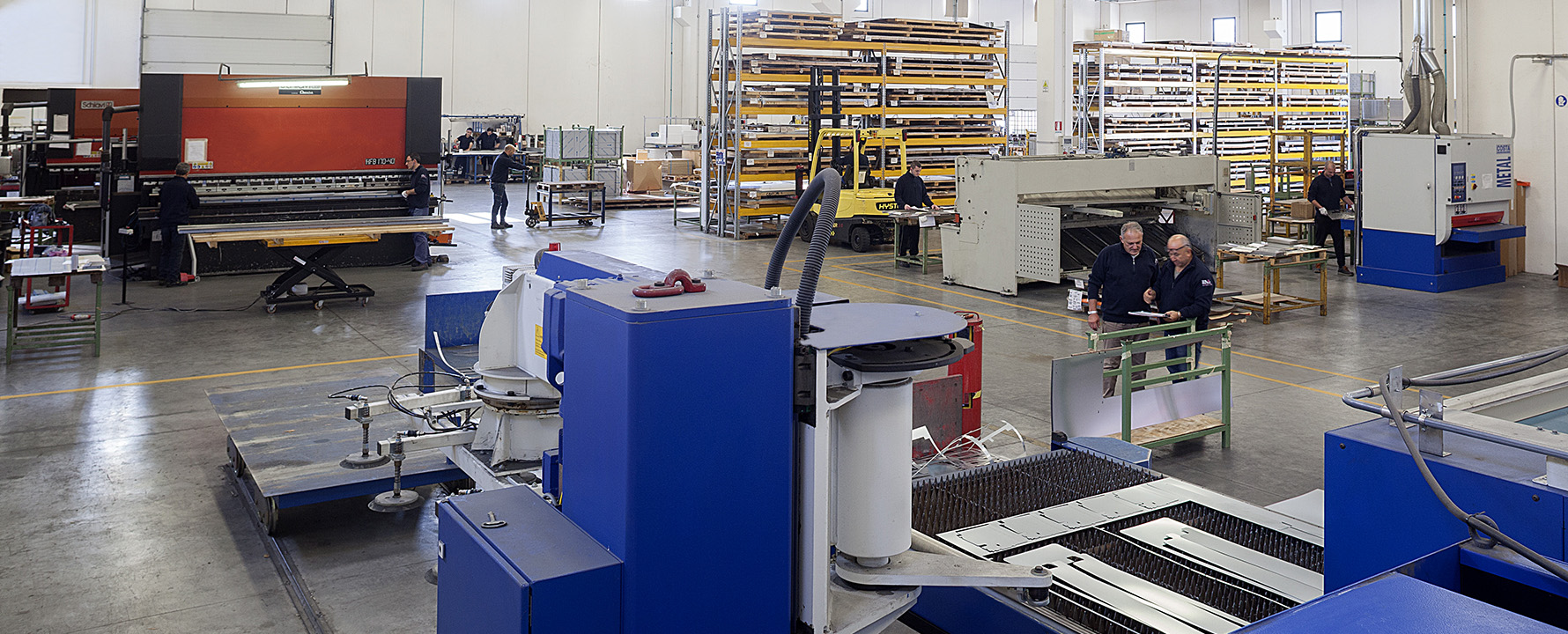Organization
When we decided to start with this wonderful "entrepreneurial adventure", we reflected on what had to represent the business innovations and the strengths of this new industrial reality. We considered appropriate to work on organizational model that we had to set up and structure to achieve our main objective, before even worrying about the technologies, even if they are important. This goal was to guarantee the market, dynamism in decisions, operational flexibility, fast and reliable deliveries, absolute quality, service, openness and participation in the business from the entire team, a shared industrial culture and respect for roles.
All this in the logic of a company that, initially small in size, was able to coexist together with all the organizational and structural elements of an enterprise, a system of internal and external relations based mainly on personal knowledge relationships.
We wanted a lean but efficient organization, not too top down and sophisticated but not even simple, confidential and outdated.
We have thought about an organization of an elementary type, with inside it, even if aggregated in a few people, all the functions necessary for a company to operate with professionalism and authority on the market, increasing the brand’s vision and its value and consequently associating it with elements that were synonymous with quality.
We have worked on all this and today the TAG METAL can boast an organizational structure that responds culturally, and at management level, to the best corporate standards, where everything moves according to well-defined business logic and oriented to customer satisfaction and to sharing common values.
The ownership of the two partners and entrepreneurs is responsible for the direction and coordination of the company's strategic activities, internal and external relations, the organization and planning of work, personnel, operational responsibilities, quality and production efficiency. In particular, Gaspare Tacconi takes care of the design and the relationship with the market, while Donato Galiè heads our manufacturing department and all the activities related to it.
In all this we have made sure that, through a change of operational culture, the human element was not only a mere executor of orders and technical / operational actions (a typical function of small companies with a traditional organization that is simple and very oligarchic or with standard production processes) but possessed an overview of the work and a capacity for professional autonomy such as to know how to move in the system with intelligence and respect for skills and roles.



